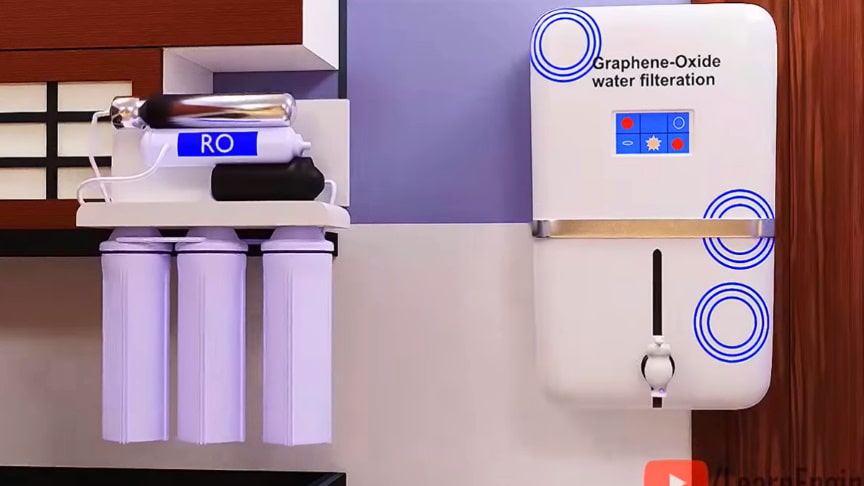Graphene is an allotrope of carbon consisting of a single layer of atoms arranged in a two-dimensional honeycomb lattice.Each atom in a graphene sheet is connected to its three nearest neighbors by a σ-bond, and contributes one electron to a conduction band that extends over the whole sheet.
source/image(PrtSc): Lesics
Recently, a group of Manchester Institute of Science and Technology researchers made a major breakthrough in the graphene based desalination process. They were able to remove 97% of common salts in an energy efficient way. Watch the video from Lesics for more info:
The current reverse osmosis desalination technology is energy intensive, and desalination plants’ capital costs are high. By the year 2025, 14% of the world’s population will experience water scarcity, which makes this discovery very important.
Advertisement
Graphene sheets are studied as a method of water filtration, because they are able to let water molecules pass but block the passage of contaminants and substances. Graphene’s small weight and size can contribute to making a lightweight, energy-efficient and environmentally friendly generation of water filters and desalinators.Moreover, graphene-based filtration technology could come to your kitchen very soon./Lesics











